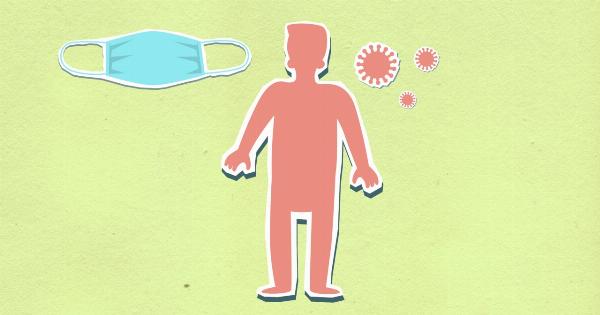Pneumonia is a serious respiratory condition that affects millions of people worldwide. It is an infection in one or both lungs, caused by bacteria, viruses, or fungi. Pneumonia can be mild to severe, and in some cases, it can even be life-threatening.
Early diagnosis and treatment are crucial to prevent complications and improve outcomes. Being aware of the early signs and symptoms of pneumonia can help individuals seek medical attention promptly. In this article, we will discuss the common early signs of pneumonia that everyone should be aware of.
1. Cough and Phlegm Production
A persistent cough is often one of the first signs of pneumonia. The cough may start with a dry or tickly sensation but later produce thick phlegm or sputum.
The color and consistency of the phlegm can vary, but it is typically yellow, green, or rusty in appearance. If you notice changes in your cough or increased phlegm production, it may indicate the presence of pneumonia.
2. Fatigue and Weakness
Pneumonia can cause extreme fatigue and weakness, even with minimal physical activity. People with pneumonia often report feeling tired and exhausted, sometimes unable to perform their daily routine tasks.
This is because the infection puts a significant strain on the body, leading to a decrease in energy levels. If you experience unexplained and sustained fatigue, it may be a sign of pneumonia.
3. Fever and Chills
Having a fever is a common symptom of pneumonia. The body’s immune response to the infection raises the core body temperature, leading to fever. Along with fever, individuals may also experience chills and shivering.
These symptoms indicate the body’s attempt to fight off the infection. If you have a persistent high fever accompanied by chills, it is essential to get evaluated for pneumonia.
4. Shortness of Breath
Pneumonia can cause difficulty breathing or shortness of breath. The infection inflames the air sacs in the lungs, making it harder for oxygen to reach the bloodstream.
This can result in breathing difficulties, especially during physical exertion or even at rest. If you find yourself struggling to catch your breath more than usual, it could be an early indicator of pneumonia.
5. Chest Pain
Chest pain is a symptom that can accompany pneumonia, particularly in cases where the infection causes inflammation in the lung tissue. The pain may be sharp or dull and can worsen with deep breathing or coughing.
The sensation of chest pain may be localized or spread throughout the chest area. If you experience chest pain along with other symptoms, it is crucial to seek medical attention promptly.
6. Sweating
Excessive sweating, especially during sleep or with mild physical activity, can be a sign of pneumonia. Sweating occurs as the body tries to regulate its temperature during an infection.
If you notice unusual sweating that is not related to exercise or ambient temperature, it could be related to an underlying pneumonia infection.
7. Rapid Breathing
One of the early signs of pneumonia is an increased breathing rate or rapid breathing. The body responds to the infection by trying to take in more oxygen. As a result, people with pneumonia may breathe faster than normal, even at rest.
If you observe rapid breathing, especially in conjunction with other symptoms, it is advisable to consult a healthcare professional.
8. Confusion
In some cases, particularly in older adults or those with weakened immune systems, confusion or changes in mental status can be an early sign of pneumonia. The infection can affect the brain, leading to cognitive impairment or disorientation.
If you or a loved one experiences unexplained confusion or behavioral changes, it is essential to seek medical attention immediately.
9. Nausea and Vomiting
Pneumonia can cause gastrointestinal symptoms such as nausea and vomiting in some individuals. These symptoms may be accompanied by a loss of appetite and general discomfort.
If you have respiratory symptoms along with persistent nausea or vomiting, it is crucial to consider the possibility of pneumonia.
10. Bluish Lips or Nail Beds
In severe cases of pneumonia, where oxygen levels are significantly compromised, a bluish tinge may appear on the lips or nail beds. This bluish discoloration, called cyanosis, indicates a lack of oxygen in the blood.
It is a severe sign and requires urgent medical attention.
Conclusion
Pneumonia can affect people of all ages and can lead to severe complications if left untreated. Recognizing the early signs and symptoms is crucial for early diagnosis and prompt treatment.
If you or someone you know is experiencing any of the mentioned symptoms, it is vital to consult a healthcare professional for proper evaluation and management. Remember, early detection and appropriate treatment are essential in combating pneumonia and reducing the risk of complications.




























